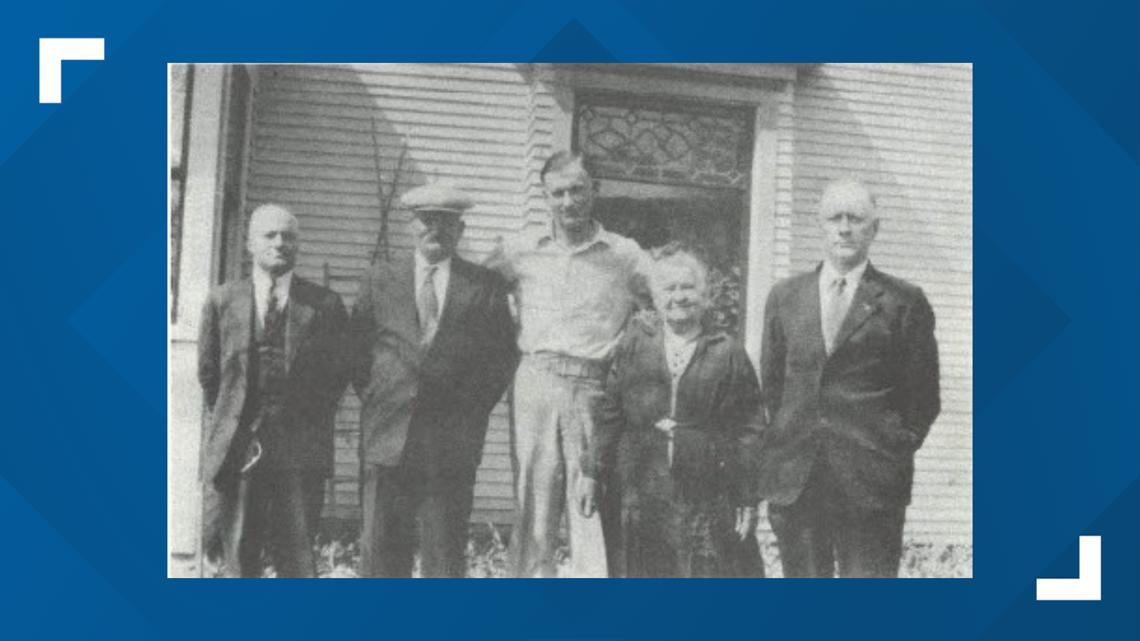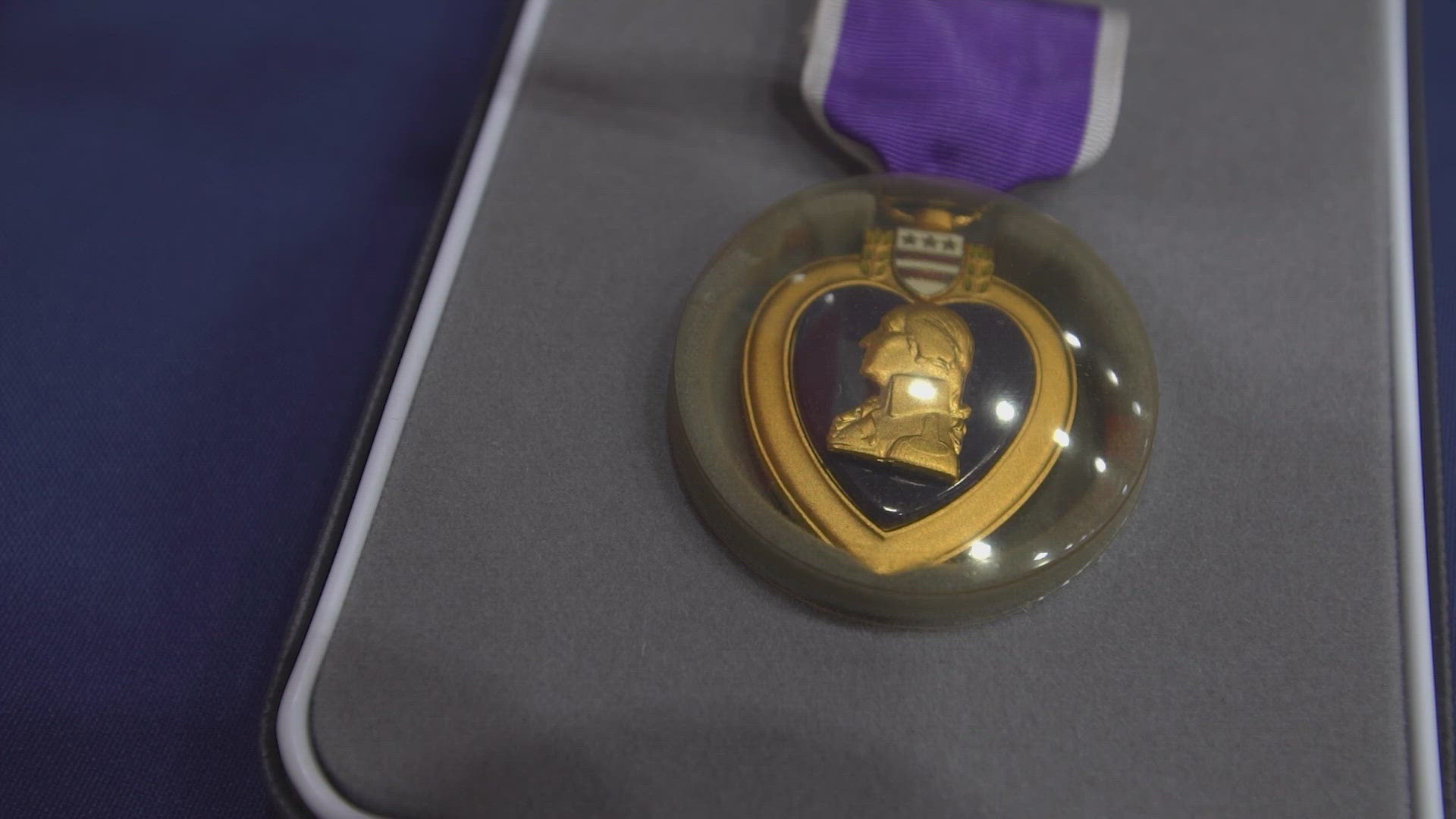FORT WORTH, Texas — From his home in East Texas, Mike Schaffer has been to more than his share of small-town patriotic parades. But he says there was always something missing.
"They always honored Gold Star families in the parades," he said of families who lost a loved one at war. "But the Knox family never got that honor. That bothered me."
Because he knew that his great-uncle Elbert Henry Knox deserved the honor too.
The day after the attack on Pearl Harbor, December 7, 1941, the Japanese Navy attacked Wake Island, a small atoll 2,400 hundred miles to the west. Defended by 400 U.S. Marines it was also home to 1,145 civilian workers hired to help build an airfield for American forces. They held off the Japanese invasion for 15 days before being forced to surrender.
Elbert Knox was among the civilian contractors held on the island as prison labor until September 20, 1942, and was among 202 of the contractors who were then sent to Japan. Knox ended up at the Fukuoka Prisoner of War Camp #18 B, where he was among the prison laborers forced to build the Sasebo (Soto) Dam.
Military research uncovered that, in addition to being denied food and medicine that were sent by the International Red Cross, the men suffered through beatings and abuse and back-breaking work on minimal rations.
To battle the Japanese winter, Knox fashioned clothing out of a blanket to try to keep warm. The camp commander punished Knox by beating him and placing him in a four-foot square solitary confinement cell open to the elements with temperatures near zero degrees Fahrenheit. Elbert Henry Knox died of malnutrition and exposure on January 15, 1944.
"You can have tears rolling out of your eyes reading what happened to him," said his great-nephew Mike Shaffer.
And, although after World War II Knox's remains were exhumed and repatriated to the National Memorial Cemetery of the Pacific in Hawaii, there were no official commendations for his service and sacrifice. He was a military contractor, not an enlisted soldier.


"It was gnawing at me, I had to do it," Shaffer said of the months-long effort he initiated to get his great-uncle the honors he felt he deserved.
Knox and the other defenders of Wake Island were among those given World War II veteran status in 1981.
"I kept getting turned down," Shaffer said of inquiries to get his ancestor the honors he felt he deserved. "They said that he didn't qualify. What do you mean he doesn't qualify?"
But, a great-nephew's perseverance paid off this week.
At Naval Air Station Joint Reserve Base Fort Worth, at the home of the Navy Reserve Region Readiness & Mobilization Command (REDCOM), Shaffer was presented with a Purple Heart and a Prisoner of War Medal for his great-uncle's service in WWII.
"We gather to honor and remember a true hero," said Master Chief Sean Bohanan, REDCOM Fort Worth Command. "A man whose courage, resilience, and unwavering commitment to our nation deserves our highest respect."
"And I thank all of you for what you do," Shaffer said to the military crowd that assembled to honor his great-uncle. "Thank you very much."
Back in Japan where Elbert Knox and 52 other American prison laborers died, the dam they built still stands. Knox's and the other names are inscribed there as testament to their service and all that they endured.
Now, his Purple Heart and his Prisoner of War medal will get a place of honor at Mike Schaffer's home in Tyler. And he can tell his family that the name of Elbert Henry Knox will forever be etched in history too.
"It's an honor, Shaffer told us. "A great, great honor."

